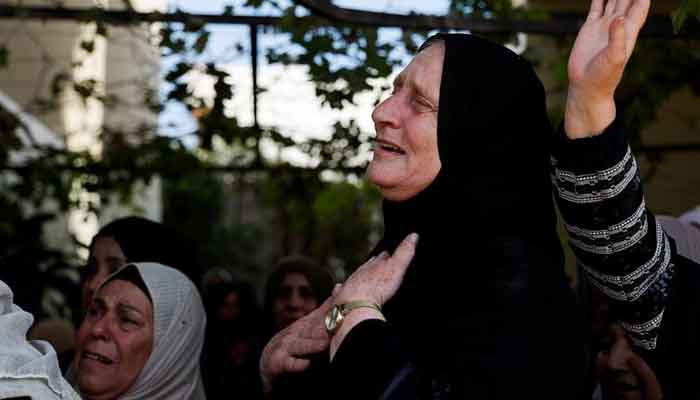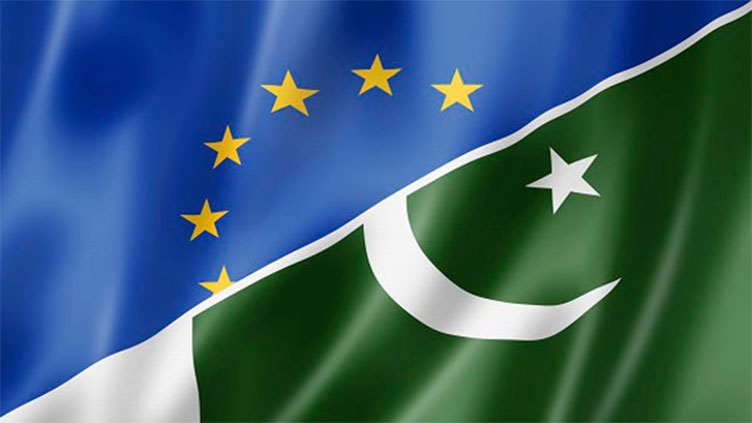Leaderships of countries across the Muslim world are now left with an impossible set of concurrent circumstances.
In December 1987 after two decades of humiliation, oppression, and continued life under occupation, Palestinians began a series of protests that ended up becoming what is today referred to as the first Intifada.
Within a month of the start of the protests, the Israeli government at the time sought to deal with the protests through firing live ammunition on protestors – but this caused a major backlash in the United States and at the UN, and so a new method was devised: breaking the hands of Palestinians. Why? The New York Times explains, in a story by David Shipler, published on January 26, 1988. “In response to complaints from the Reagan Administration and the United Nations Security Council about use of lethal force, Israel’s Defense Minister, Yitzhak Rabin, announced a policy last week of ‘might, power and beatings’ to cow the Arabs. Troops were reportedly sent into homes to break the hands of Arab youths so they could not throw stones.”
If that defence minister’s name, ‘Yitzhak Rabin’, seems familiar, it is because it should. Rabin was awarded the 1994 Nobel Peace Prize for his role in the historic Oslo Peace Accords that were signed in September 1993 between himself, as the prime minister of Israel, and Yasser Arafat, as the leader of the Palestinian Liberation Organisation (PLO). Rabin was assassinated in November 1995 by a right wing, Islamophobic, pro-illegal settlements Israeli terrorist named Yigal Amir.
The people that run Israel today are of the same ideological fraternity as Yigal Amir. Here is a description of Israel’s Minister of National Security, Itamar Ben-Gvir, by Ruth Margalit from the February 20, 2023 edition of the New Yorker magazine:
“Ben-Gvir, who entered parliament in 2021, leads a far-right party called Jewish Power. His role model and ideological wellspring has long been Meir Kahane, a Brooklyn rabbi who moved to Israel in 1971 and, during a single term in the Knesset, tested the moral limits of the country…To Kahane, Arabs were ‘dogs’ who ‘must sit quietly or get the hell out’. His party, Kach (Thus), was finally barred from parliament in 1988. Jewish Power is an ideological offshoot of Kach; Ben-Gvir served as a Kach youth leader and has called Kahane a ‘saint’. Ben-Gvir, who is forty-six, has been convicted on at least eight charges, including supporting a terrorist organization and incitement to racism.”
In exactly three decades, the Palestinian-Israeli peace journey, for which the Oslo Accord seemed like such a major moment has turned into an unmitigated and unrelenting nightmare. Israelis live in constant fear of Hezbollah rocket attack, all kinds of terrorist threats, and now the bloody reality of the October 7 Hamas attack on Israel.
The people of Gaza (and the West Bank) live through an unrelenting and ceaseless expansion of occupation that has literally continued non-stop from 1993 to today. But the nightmare unleashed upon the Palestinians since October 8 has no parallel in recent memory, anywhere. Israel is solely responsible for the carnage of innocent Palestinian carcasses and placenta, strewn across the debris of flattened apartment buildings and homes and restaurants and schools and hospitals in Gaza. But without the October 7 attacks by Hamas, the current genocide or ethnic cleansing or pogrom or whatever you want to call what is happening in Gaza, may not have happened– – ot now, not like this.
Since the discourse on Hamas is so emphatic among Western audiences – whatever its motivation, it is a designated terrorist group – we are compelled to ignore or neglect the roots of its behaviours and actions. This then leaves us with a more pressing question. Where did Hamas – a terrorist group – come from?
To answer this, we have to return to the beginning of the 1987 Palestinian protests that were dealt with by Yitzhak Rabin and the Israeli government through “might, power and beatings”. In December 1987, there was no Hamas. There was the PLO, which was then known to Israeli and Western audiences as, you guessed it, a ‘terrorist’ organisation. Rabin and the Israelis beat the PLO into submission after the first Intifada. One of the conditions for the Oslo Accords of 1993 was for the PLO to renounce ‘terrorism’ which it did. Hamas is the fatherless child of the decapitation of the legitimacy of Palestinian resistance. Indeed, the first time the acronym Hamas (Harkat al Muqawwama al Islamiyyah) appeared was in January 1988, the exact same time as the New York Times report on Rabin’s ‘might, power and beatings’ approach to dealing with the first Intifada.
Soon (and much sooner than many had imagined) a long-held dream of Israeli right wingers, and their supporters throughout the capitals of Western nations, is going to be realised: Gaza will be depopulated. That is the opportunity that Hamas’s October 7 attack has helped create for the irreconcilable right-wing zealots that shape policy in Tel Aviv and around the world. The ostensible objective of these military attacks is to eliminate Hamas as an entity. But everyone – including the Israeli right wing and its many supporters in Washington DC, London, Brussels and around the world – knows eliminating Hamas will not eliminate the legitimate aspirations of Palestinians, but it might make them more extreme. Not unlike how Hamas itself essentially replaced the once-terrorist-and-now-teddy-bear PLO.
In the age of social media, Palestinian ‘resistance’ will become louder and more visible – where and when it can. But occasional protests in London, annual speeches by the heads of state or foreign ministers of OIC countries (and outliers like Columbia and Venezuela) at the UN General Assembly and the occasional viral video or image are clearly being seen by Israel and its supporters as manageable noise.
What seems to be unmanageable for Israel and its supporters is the politics of continued expansion of illegal settlements throughout Palestinian lands. Throughout the last three weeks, illegal Israeli settlers have been depopulating Palestinian villages under the canopy of terror being unleashed by the Israeli weapons being rained down upon Gaza.
It is not a coincidence that senior members of the Israeli coalition government are themselves illegal settlers. The term ‘illegal settler’ has come to have no standing in either Israeli or international law. In stark contrast, the term terrorist has valid standing everywhere. This disparity or dichotomy is not brand new, but its salience is renewed every time a place is carpet bombed or threatened to be bombed back to the stone age, or has the rage of empire unleashed upon it.
Iran, Russia and many anti-West extremists see this disparity and revel in it. They can expand their information operations about the wider inequities and injustices that the still-US-led world order or ‘rules-based order’ openly endorses and sustains. The game, for Russia in particular, is to expand and deepen distrust and disgust with the West. The ceaseless reminders of American and Western duality in how those countries are framing the Russian invasion of Ukraine versus the Israeli invasion of Gaza are manna from heaven for the global Russian disinformation machine.
Leaderships of countries across the Muslim world are now left with an impossible set of concurrent circumstances. They must appease the raging angst and frustration of their populations with respect to Gaza; they must somehow continue to engage in wider policies of de-risking and normalization within their regions; and they must try to govern mostly young and desperately underserved populations without a dismantling of whatever semblance of order exists in their respective countries. From Morocco to Indonesia and from Kazakhstan to the Maldives – the ripples and ramifications of the depopulation of Gaza will be generational, even if a wider military conflagration or escalation in the Middle East is somehow avoided.
Elites in Muslim societies know this all too well – and their instinct, quite rightly, is to want to maintain order close to home, rather than become entangled with a losing proposition in Gaza, so far away. This will create societal and political pressures so profound that many orders will be tested severely. The only orders that will survive are those that are able to enact the kind of reforms and transformations they need at home – that materially improve the lives of their people.
Pakistani military and civilian leaders need to ask themselves if they realistically see themselves as being able to enact such changes or reforms. The rage of the people is real – and though Gaza is and will remain the ignition point, the fuel is much closer to home.

 Latest News3 days ago
Latest News3 days ago
 Business3 days ago
Business3 days ago
 Business2 days ago
Business2 days ago
 Business2 days ago
Business2 days ago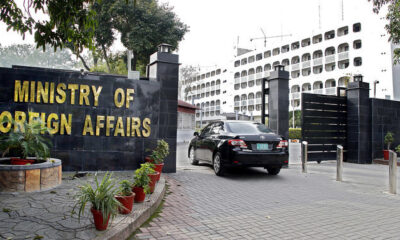
 Latest News3 days ago
Latest News3 days ago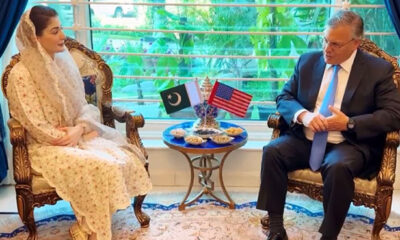
 Latest News3 days ago
Latest News3 days ago
 Business3 days ago
Business3 days ago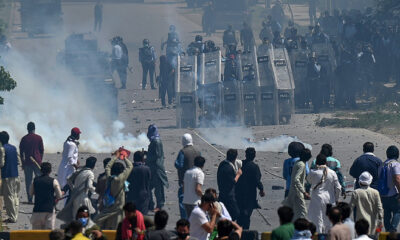
 Latest News3 days ago
Latest News3 days ago
